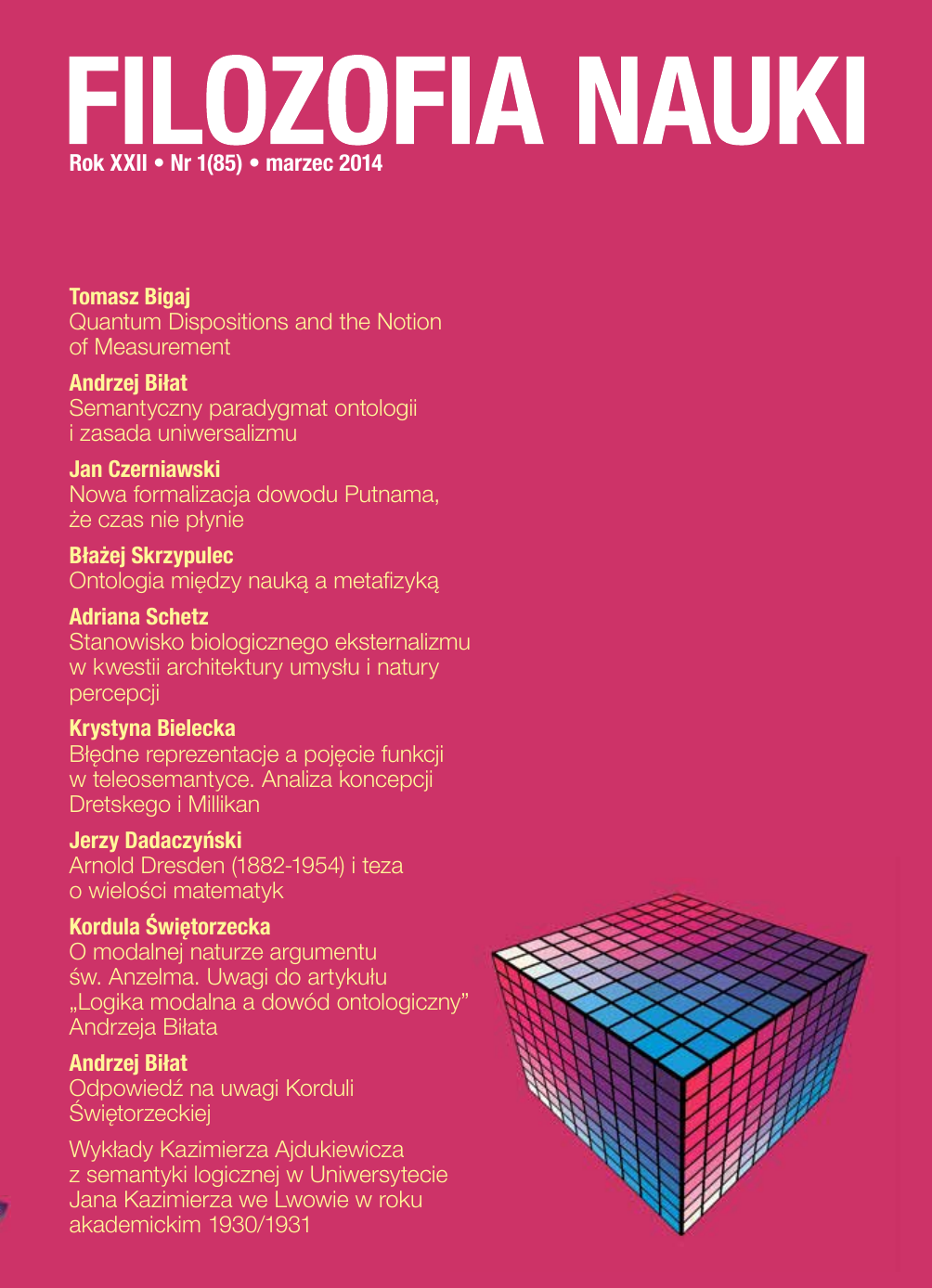Arnold Dresden (1882-1954) and the Thesis of the Plurality of Mathematics
Keywords:
Arnold Dresden, plurality of mathematics, intuitionism, intuitionistic mathematics, applicability of mathematicsAbstract
The plurality of mathematics was recognized in the 1960s. In the 1920s two competing versions of mathematics were available: the classical and the intuitionistic. Their supporters rejected opponents' mathematics as such, so that the thesis of the plurality of mathematics could not be accepted. Arnold Dresden was the exception. He rejected the idea of evaluating mathematics with respect to truth or falsehood. Instead, Dresden assigns to mathematical theories (and whole mathematics) a partially temporal degree of gradable applicability. This allows the 'coexistence' of plurality of mathematics.Downloads
Published
2014-03-01
How to Cite
Dadaczyński, J. (2014). Arnold Dresden (1882-1954) and the Thesis of the Plurality of Mathematics. The Philosophy of Science, 22(1), 121–129. Retrieved from https://www.fn.uw.edu.pl/index.php/fn/article/view/749
Issue
Section
Articles















 Filozofia Nauki/The Philosophy of Science | ISSN 1230-6894 | e-ISSN 2657-5868
Filozofia Nauki/The Philosophy of Science | ISSN 1230-6894 | e-ISSN 2657-5868